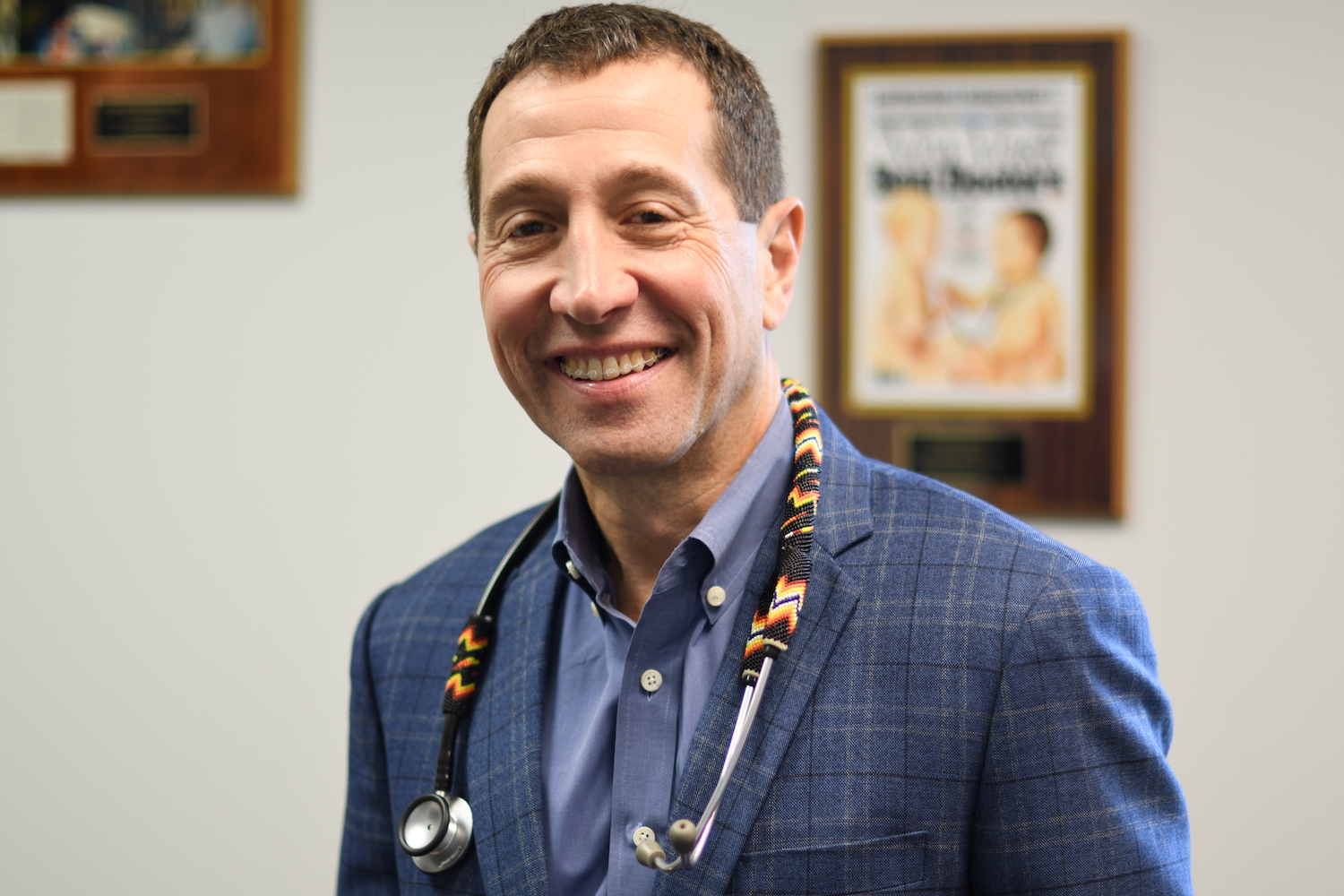
It has all the makings of a Hollywood script. A young doctor in between residencies packs up his wife and three-month-old, leaves the hustle and bustle of New York City and heads out west. Their destination, native American tribal lands in Arizona. There, he becomes the physician to the local rodeo, where injuries from bull-riding and horse-bucking are quite a departure from those in a NYC emergency room.
This unique experience is something SpecialtyCare CEO Sam Weinstein, MD, MBA, took on before starting his cardiac surgical residency. He had six months to do something a little different. But he still wanted to engage with patients. He heard about a great opportunity with the Indian Health Service, the agency that provides federal health services to American Indians and Alaska Natives. He applied and was accepted to serve as a general surgeon in Chinle, AZ, home to the Navajo nation.
The Navajo Nation covers more than 27,000 square miles across three states: Arizona, New Mexico, and Utah.
“It was really a fascinating experience,” Weinstein said, remembering how the community embraced his family, inviting them to birthday parties, weddings, and other celebrations.
“The community was very accepting. They taught us about their language and their proud heritage. They feel very strongly about their contributions to our shared culture. And you really get a sense for how the environment is critical to their religious practices. Tribal lands are the most spectacular, beautiful locations you’ve ever seen.”
“It’s a proud, giving community despite facing many challenges,” he said. For a population just over 180,000, 43 percent live below poverty level. Weinstein said probably 80 percent of the community in which he stayed, a population less than 5,000, didn’t have running water. Weinstein’s wife, a social advocate, found that many battled depression and needed help, so she began to work with groups as well, to build an awareness about psychiatric illness.
 Still, with all they had been through, Weinstein said, “They were very happy to share whatever they could. Which given all they’ve suffered through was pretty remarkable.”
Still, with all they had been through, Weinstein said, “They were very happy to share whatever they could. Which given all they’ve suffered through was pretty remarkable.”
Weinstein absorbed a number of things during the experience that he still carries with him today. He learned a deep respect for the role religion can play in someone’s healing. And since his time in the tribal lands he has performed surgery barefoot. While this isn’t an uncommon practice as some surgeons may do it for balance or other reasons, for Weinstein, there’s meaning behind it.
“I’ve operated barefoot my whole career. I learned to do it in the Navajo Nation since they taught me that walking barefoot on the earth one gets closer to their own spirit.”
Weinstein left the tribal lands with fond memories, but also with a token of appreciation. Toward the end of his stay, his stethoscope went missing. When it reappeared, it had a new look. Some colleagues, most of whom were Navajo, had it beaded in traditional Navajo colors as a parting gift. Weinstein immediately noticed amongst the earth tone beads there are thoughtfully placed blue and white stripes, symbolic to his Jewish heritage. A sincere, heartfelt gift he’ll always cherish.
Comments are closed.